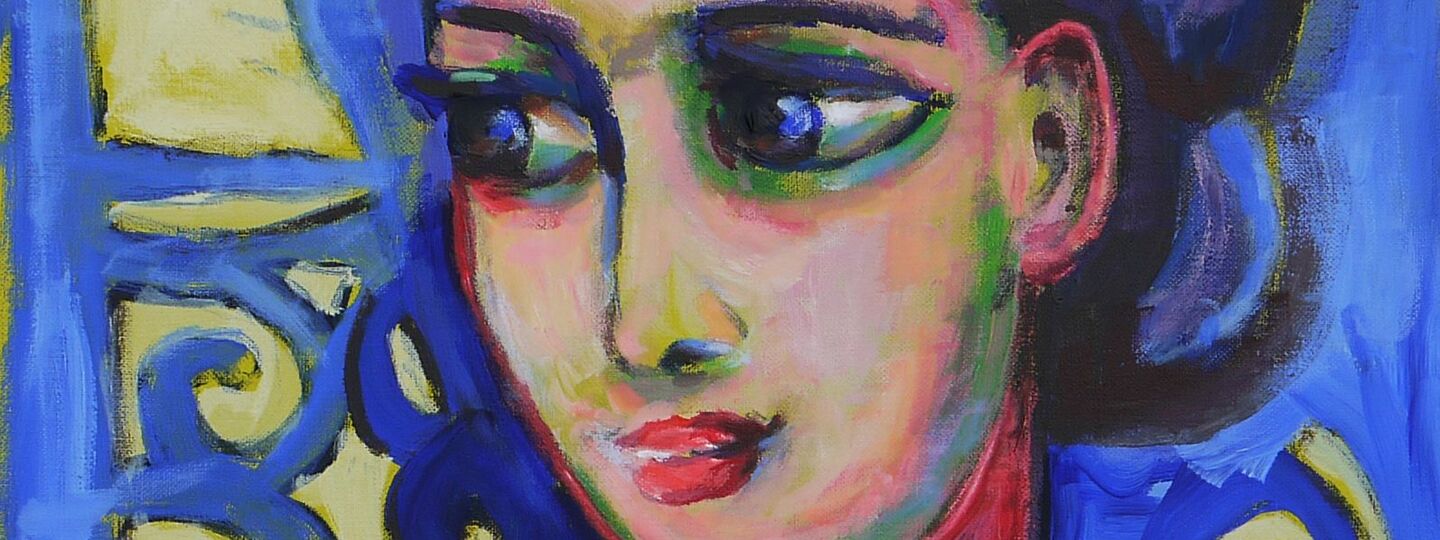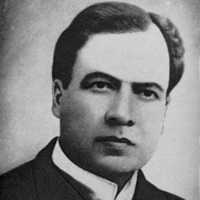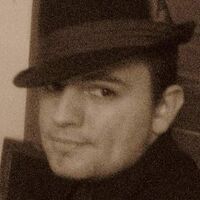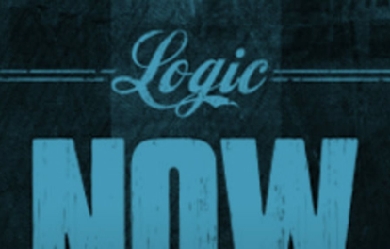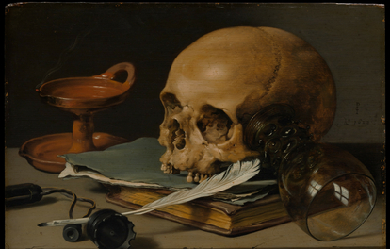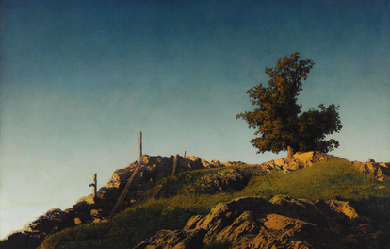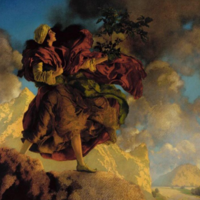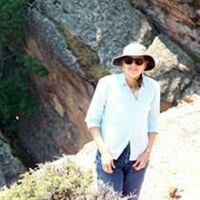Cantautor uruguayo de Tupambaé Cerro Largo, nació el 14 de setiembre de 1988 en Santa Clara de Olimar. Comenzó su interés por la música a los 16 años de edad; su abuelo le regalo una guitarra después de la continua insistencia de su padre, de querer que un hijo fuera músico de el nombrado instrumento. De pequeño, en la familia veía esa costumbre y gusto por la música y el canto; todos los géneros eran aceptados al correr de las distintas ocasiones del año. Después de haber participado en un certamen de la voz en su pueblo natal, le tomo el gusto y la dedicación al canto y la guitarra. El apoyo de personas que ya tenían el conocimiento, fue fundamental para el inicio de lo que perduraría en su vida. Al poco tiempo de afirmar sus paso, comenzó a escribir la idea de lo que podría ser una canción en letra y música. Con los años y tantas curiosidades obtuvo mejoras musicales y literarias. Así comiensan las presentaciones en sencillos evento y reuniones de amigos, donde podia sentir el agrado de la adrenalina y espontánea música autodidacta. Con el tiempo y la insistencias por comprender ese mágico mundo, lo lleva a transitar junto con su crecimiento por razones y oportunidades de la vida, en el trabajo y la formación de un ser. Formo varios grupos y duos del folclor de su país, funcionando con ritmos y fusiones de las fronteras y distintos sonidos latinoamericanos. Graba su primer álbum en el año 2014 el cual se titulo " Mi padre el alambrador " el cual llevaría el nombre de la canción principal y la que le diera mas satisfacciones. Se encuentra con su identidad y conformidad en el tercer trabajo titulado "Huella Arachana" desde ahí la comodidad y seguridad de la linea a seguir con sus mejoras fue clara. La composición de canciones y música le despertó el interés por la poesía literaria; después de conocer personas con gran gusto he interés por la misma. Sus fragmentos apuntan a las experiencias de la vida cotidiana, la historia y su vivencias. Nombrado en distintos premios y reconocimientos como cantautor dentro y fuera del país, llevo a tomar con mas dedicación y seriedad la composición musical y literaria. Luis Arrúa canta y escribe inspirado en la vida cotidiana y sus inquietudes, siempre tratando dejar un mensaje y hacer buena utilidad de la canción y poesía.
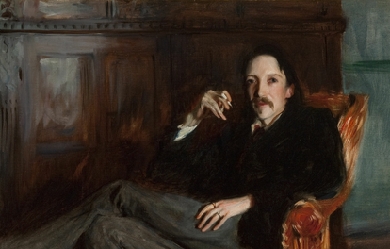
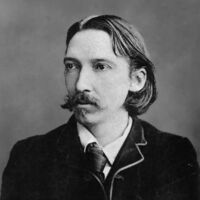
Robert Louis Balfour Stevenson (13 November 1850 – 3 December 1894) was a Scottish novelist, poet, essayist and travel writer. His best-known books include Treasure Island, Kidnapped, and Strange Case of Dr Jekyll and Mr Hyde. A literary celebrity during his lifetime, Stevenson now ranks among the 26 most translated authors in the world. He has been greatly admired by many authors, including Jorge Luis Borges, Ernest Hemingway, Rudyard Kipling, Marcel Schwob, Vladimir Nabokov, J. M. Barrie, and G. K. Chesterton, who said of him that he “seemed to pick the right word up on the point of his pen, like a man playing spillikins”.
▪️▪️▪️▪️▪️▪️▪️▪️▪️▪️ ▪️▪️▪️▪️▪️▪️▪️▪️ ▪️▪️▪️▪️▪️▪️ ▪️▪️▪️▪️ ▪️▪️▪️ ▪️▪️ ▪️ Finding my way with writing and poetry. 🪶The world makes more sense with poetry. Connect with me on: Tumblr: 1introvertedsage My Poetic Side: Introverted Sage All Poetry: Introverted Sage Substack: Introverted Sage
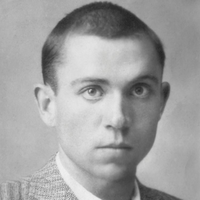
Miguel Hernández (Orihuela, 1910 – Alicante, 1942) Poeta español. Adscrito a la Generación del 27, destacó por la hondura y autenticidad de sus versos, reflejo de su compromiso social y político. Nacido en el seno de una familia humilde y criado en el ambiente campesino de Orihuela, de niño fue pastor de cabras y no tuvo acceso más que a estudios muy elementales, por lo que su formación fue autodidacta.
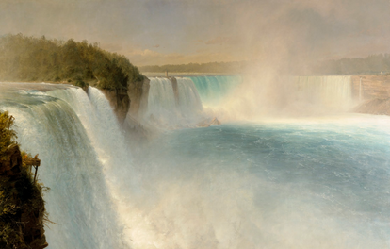
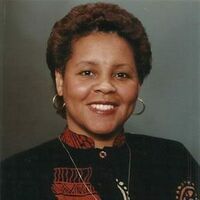
I am an American Patriot, a Believer, and a lover of God and Country. I am a widow, a mother of five children ❤️ and five grandchildren. ❤️ I’m very proud, and honored to have borne such loving, talented and hard working children. Being a Mother was my destiny. Being a writer is also part of my destiny that I truly thank God for. It’s a gift from God It was after my children were grown and left home that I became serious about writing. I have written a book titled (American Poetry and Music) that has been published by Christian Faith Publishing. Which can be purchased on Amazon.com, Barnes and Noble, and Thrift Books.com I get my inspiration from the Creator, and I go under the heading of H.S.I. Which stands for (Holy Spirit Inspiration) Some of these poems on Poeticous.com appear in my book . I am grateful for them allowing me to publish my poems on this site also. I’ve come to love this site very much. All Poems, and Original Music Videos on this site are my own original compositions, and are covered under U.S.Copyright laws.© 2024. For more info -You can find me on (Youtube) and (Facebook). Email no longer public, but if you message me from Facebook or here on Poeticous I’ll give it to you privately. No copyright infringement intended with any Pictures or videos used on these poetry pages. Some videos of artist I enjoy were obtained from Youtube, and some pictures are from Public Domain sites. Mostly they are the property of Poeticous I do not claim rights for any works except my own Original Work. Thank you, Charlotte B. Williams
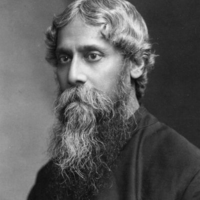
Rabindranath Tagoreα (7 May 1861 – 7 August 1941) was an Indian Bengali polymath who reshaped his region’s literature and music. Author of Gitanjali and its “profoundly sensitive, fresh and beautiful verse”, he became the first non-European to win the Nobel Prize in Literature in 1913. In translation his poetry was viewed as spiritual and mercurial; his seemingly mesmeric personality, flowing hair, and other-worldly dress earned him a prophet-like reputation in the West. His “elegant prose and magical poetry” remain largely unknown outside Bengal.
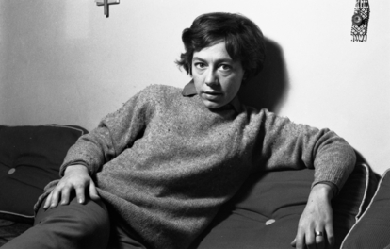

Flora Alejandra Pizarnik (Avellaneda, 29 de abril de 1936 – Buenos Aires, 25 de septiembre de 1972) fue una poetisa, ensayista y traductora argentina. Estudió filosofía y Letras en la Universidad de Buenos Aires y pintura con Juan Batlle Planas. Entre 1960 y 1964, Pizarnik vivió en París, donde trabajó para la revista Cuadernos y algunas editoriales francesas, publicó poemas y críticas en varios diarios y tradujo a Antonin Artaud, Henri Michaux, Aimé Césaire e Yves Bonnefoy. Además, estudió historia de la religión y literatura francesa en La Sorbona. Tras su retorno a Buenos Aires, Pizarnik publicó tres de sus principales volúmenes: Los trabajos y las noches, Extracción de la piedra de locura y El infierno musical, así como su trabajo en prosa La condesa sangrienta.
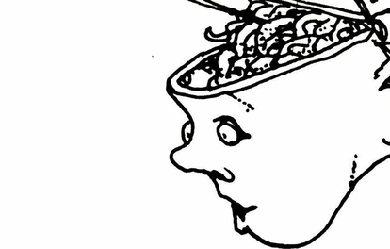
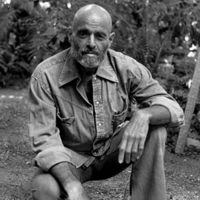
Sheldon Allan Shel Silverstein (September 25, 1930 – May 10, 1999), was an American poet, singer-songwriter, cartoonist, screenwriter, and author of children's books. He styled himself as Uncle Shelby in some works. Translated into more than 30 languages, his books have sold over 20 million copies.
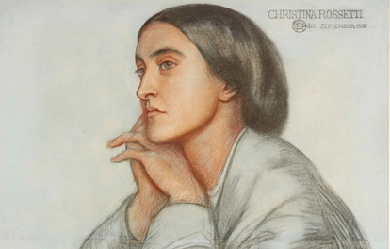
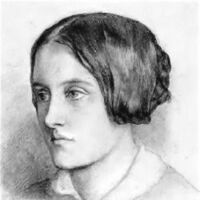
In 1830, Christina Rossetti was born in London, one of four children of Italian parents. Her father was the poet Gabriele Rossetti; her brother Dante Gabriel Rossetti also became a poet and a painter. Rossetti’s first poems were written in 1842 and printed in the private press of her grandfather. In 1850, under the pseudonym Ellen Alleyne, she contributed seven poems to the Pre-Raphaelite journal The Germ, which had been founded by her brother William Michael and his friends.
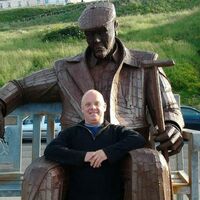
Welcome to my poetry page, I think its a blast, Some of my Poetry is about my past. Lots of wonderful words are written and funny, I don't get paid so it wont cost you money. My poems are of the wonders of life someone said I have written about the dead. Some people may be offended by some of my rhymes, So if your offended don't come back to read next time. But if my poetry makes you laugh please come back, Because this Yorkshire man has a sense of humour and can be really daft.

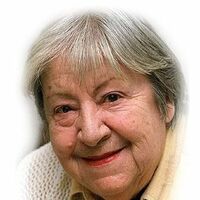
Gloria Fuertes (Madrid, 28 de julio de 1917 – Madrid, 27 de noviembre de 1998) fue una poetisa española. Nació en Lavapiés, en la época, un modesto barrio del Madrid antiguo. Su madre era costurera y sirvienta; su padre, bedel. Poco se sabe de su vida familiar, a lo que ha contribuido que la escritora siempre guardara celosamente su intimidad. Se ha especulado sobre su homosexualidad, que aparecería sutilmente declarada en poemas como «Lo que me enerva», «Me siento abierta a todo», «A Jenny», etc. Dice Gloria Fuertes: Sale caro, señores, ser poeta. La gente va y se acuesta tan tranquila que después del trabajo da buen sueño−. Trabajo como esclavo llego a casa, me siento ante la mesa sin cocina, me pongo a meditar lo que sucede. La duda me acribilla todo espanta; comienzo a ser comida por las sombras las horas se me pasan sin bostezo el dormir se me asusta se me huye −escribiendo me da la madrugada−. Y luego los amigos me organizan recitales, a los que acudo y leo como tonta, y la gente no sabe de esto nada. Que me dejo la linfa en lo que escribo, me caigo de la rama de la rima asalto las trincheras de la angustia que nombran su héroe los fantasmas, me cuesta respirar cuando termino. Sale caro señores ser poeta.
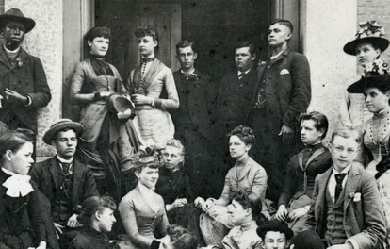
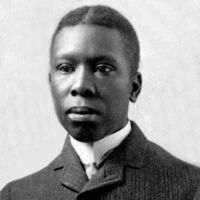
Paul Laurence Dunbar was the first African-American poet to garner national critical acclaim. Born in Dayton, Ohio, in 1872, Dunbar penned a large body of dialect poems, standard English poems, essays, novels and short stories before he died at the age of 33. His work often addressed the difficulties encountered by members of his race and the efforts of African-Americans to achieve equality in America. He was praised both by the prominent literary critics of his time and his literary contemporaries. Dunbar was born on June 27, 1872, to Matilda and Joshua Dunbar, both natives of Kentucky. His mother was a former slave and his father had escaped from slavery and served in the 55th Massachusetts Infantry Regiment and the 5th Massachusetts Colored Cavalry Regiment during the Civil War. Matilda and Joshua had two children before separating in 1874. Matilda also had two children from a previous marriage. The family was poor, and after Joshua left, Matilda supported her children by working in Dayton as a washerwoman. One of the families she worked for was the family of Orville and Wilbur Wright, with whom her son attended Dayton's Central High School. Though the Dunbar family had little material wealth, Matilda, always a great support to Dunbar as his literary stature grew, taught her children a love of songs and storytelling. Having heard poems read by the family she worked for when she was a slave, Matilda loved poetry and encouraged her children to read. Dunbar was inspired by his mother, and he began reciting and writing poetry as early as age 6. Dunbar was the only African-American in his class at Dayton Central High, and while he often had difficulty finding employment because of his race, he rose to great heights in school. He was a member of the debating society, editor of the school paper and president of the school's literary society. He also wrote for Dayton community newspapers. He worked as an elevator operator in Dayton's Callahan Building until he established himself locally and nationally as a writer. He published an African-American newsletter in Dayton, the Dayton Tattler, with help from the Wright brothers. His first public reading was on his birthday in 1892. A former teacher arranged for him to give the welcoming address to the Western Association of Writers when the organization met in Dayton. James Newton Matthews became a friend of Dunbar's and wrote to an Illinois paper praising Dunbar's work. The letter was reprinted in several papers across the country, and the accolade drew regional attention to Dunbar; James Whitcomb Riley, a poet whose works were written almost entirely in dialect, read Matthew's letter and acquainted himself with Dunbar's work. With literary figures beginning to take notice, Dunbar decided to publish a book of poems. Oak and Ivy, his first collection, was published in 1892. Though his book was received well locally, Dunbar still had to work as an elevator operator to help pay off his debt to his publisher. He sold his book for a dollar to people who rode the elevator. As more people came in contact with his work, however, his reputation spread. In 1893, he was invited to recite at the World's Fair, where he met Frederick Douglass, the renowned abolitionist who rose from slavery to political and literary prominence in America. Douglass called Dunbar "the most promising young colored man in America." Dunbar moved to Toledo, Ohio, in 1895, with help from attorney Charles A. Thatcher and psychiatrist Henry A. Tobey. Both were fans of Dunbar's work, and they arranged for him to recite his poems at local libraries and literary gatherings. Tobey and Thatcher also funded the publication of Dunbar's second book, Majors and Minors. It was Dunbar's second book that propelled him to national fame. William Dean Howells, a novelist and widely respected literary critic who edited Harper's Weekly, praised Dunbar's book in one of his weekly columns and launched Dunbar's name into the most respected literary circles across the country. A New York publishing firm, Dodd Mead and Co., combined Dunbar's first two books and published them as Lyrics of a Lowly Life. The book included an introduction written by Howells. In 1897, Dunbar traveled to England to recite his works on the London literary circuit. His national fame had spilled across the Atlantic. After returning from England, Dunbar married Alice Ruth Moore, a young writer, teacher and proponent of racial and gender equality who had a master's degree from Cornell University. Dunbar took a job at the Library of Congress in Washington, D.C. He found the work tiresome, however, and it is believed the library's dust contributed to his worsening case of tuberculosis. He worked there for only a year before quitting to write and recite full time. In 1902, Dunbar and his wife separated. Depression stemming from the end of his marriage and declining health drove him to a dependence on alcohol, which further damaged his health. He continued to write, however. He ultimately produced 12 books of poetry, four books of short stories, a play and five novels. His work appeared in Harper's Weekly, the Sunday Evening Post, the Denver Post, Current Literature and a number of other magazines and journals. He traveled to Colorado and visited his half-brother in Chicago before returning to his mother in Dayton in 1904. He died there on Feb. 9, 1906. Literary style Dunbar's work is known for its colorful language and a conversational tone, with a brilliant rhetorical structure. These traits were well matched to the tune-writing ability of Carrie Jacobs-Bond (1862–1946), with whom he collaborated. Use of dialect Much of Dunbar's work was authored in conventional English, while some was rendered in African-American dialect. Dunbar remained always suspicious that there was something demeaning about the marketability of dialect poems. One interviewer reported that Dunbar told him, "I am tired, so tired of dialect", though he is also quoted as saying, "my natural speech is dialect" and "my love is for the Negro pieces". Though he credited William Dean Howells with promoting his early success, Dunbar was dismayed by his demand that he focus on dialect poetry. Angered that editors refused to print his more traditional poems, he accused Howells of "[doing] my irrevocable harm in the dictum he laid down regarding my dialect verse." Dunbar, however, was continuing a literary tradition that used Negro dialect; his predecessors included Mark Twain, Joel Chandler Harris, and George Washington Cable. Two brief examples of Dunbar's work, the first in standard English and the second in dialect, demonstrate the diversity of the poet's production: (From "Dreams") What dreams we have and how they fly Like rosy clouds across the sky; Of wealth, of fame, of sure success, Of love that comes to cheer and bless; And how they wither, how they fade, The waning wealth, the jilting jade — The fame that for a moment gleams, Then flies forever, — dreams, ah — dreams! (From "A Warm Day In Winter") "Sunshine on de medders, Greenness on de way; Dat's de blessed reason I sing all de day." Look hyeah! What you axing'? What meks me so merry? 'Spect to see me sighin' W'en hit's wa'm in Febawary? List of works * Oak and Ivy (1892) * Majors and Minors (1896) * Lyrics of Lowly Life (1896) * Folks from Dixie (1898) * The Strength of Gideon (1900) * In Old Plantation Days (1903) * The Heart of Happy Hollow (1904) * Lyrics of Sunshine and Shadow (1905) References Paul Laurence Dunbar Website - www.dunbarsite.org/biopld.asp Wikipedia- http://en.wikipedia.org/wiki/Paul_Laurence_Dunbar

Frederic Ogden Nash (August 19, 1902 – May 19, 1971) was an American poet well known for his light verse. At the time of his death in 1971, The New York Times said his “droll verse with its unconventional rhymes made him the country’s best-known producer of humorous poetry”. Nash wrote over 500 pieces of comic verse. The best of his work was published in 14 volumes between 1931 and 1972.

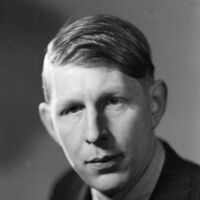
Wystan Hugh Auden (21 February 1907 – 29 September 1973), who published as W. H. Auden, was an Anglo-American poet, born in England, later an American citizen, regarded by many as one of the greatest writers of the 20th century. His work is noted for its stylistic and technical achievements, its engagement with moral and political issues, and its variety of tone, form and content. The central themes of his poetry are love, politics and citizenship, religion and morals, and the relationship between unique human beings and the anonymous, impersonal world of nature. Auden grew up in Birmingham in a professional middle class family and read English literature at Christ Church, Oxford. His early poems, written in the late 1920s and early 1930s, alternated between telegraphic modern styles and fluent traditional ones, were written in an intense and dramatic tone, and established his reputation as a left-wing political poet and prophet. He became uncomfortable in this role in the later 1930s, and abandoned it after he moved to the United States in 1939, where he became an American citizen in 1946. His poems in the 1940s explored religious and ethical themes in a less dramatic manner than his earlier works, but still combined traditional forms and styles with new forms devised by Auden himself. In the 1950s and 1960s many of his poems focused on the ways in which words revealed and concealed emotions, and he took a particular interest in writing opera librettos, a form ideally suited to direct expression of strong feelings.
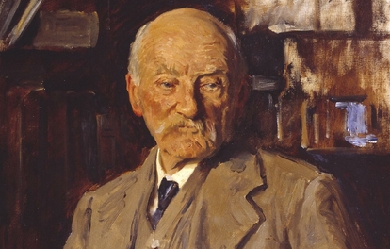
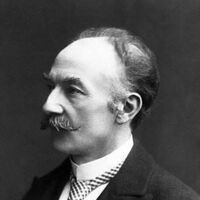
Thomas Hardy (2 June 1840 – 11 January 1928) was an English novelist and poet. While his works typically belong to the Naturalism movement, several poems display elements of the previous Romantic and Enlightenment periods of literature, such as his fascination with the supernatural. While he regarded himself primarily as a poet who composed novels mainly for financial gain, he became and continues to be widely regarded for his novels, such as Tess of the d'Urbervilles and Far from the Madding Crowd. Hardy's poetry, first published in his fifties, has come to be as well regarded as his novels and has had a significant influence over modern English poetry, especially after The Movement poets of the 1950s and 1960s cited Hardy as a major figure.
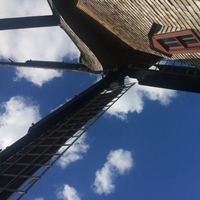
Hello. My name is Mike. I'm a 30something turning 102 this year. I'm the father to an amazing little girl who I'm unable to see as much as I would like, because I was unable to save her from a lifetime of pain. On this page you'll hear me drone on about topics such as this, being a victim of partners and parents with personality disorders, OCD, PTSD, suicidal ideation, and the occasional nonsensical poem about a snail or a garden gnome. There are horrible people in the world, and many of them are inescapable, and most of you would not believe the chaotic hell my life has led me through. But I have always tried to be the sort of person who I wish others would be. It's so much harder to be a bad person than a good person. Given the issues in my life, I might suffer hazards that would prevent me from furthering this message, so let me attempt to do so here. Be a good person. Know that nothing you do will ever change the world, and that all the help you give to others will ultimately be pointless. But that shouldn't stop you from trying to be the best person you can be. Live as altruistically and conscientiously towards others as possible. Hold open doors, be humble, apologize, offer help. If you see someone in need, don't wait for someone else to come along, because they might not. If you see a need, fill a need. Treat others with kindness and fairness, empathy and equity. If you hurt someone, find out how you can prevent yourself from doing so again in the future. Let people in when you're driving, spare some change to panhandlers, defend kids and animals when you see they're in trouble. The meaning of life is progress. Without growth, there can only be decay. It's too late for humanity as a species, but if everyone reading this could just try a little harder, maybe life wouldn't have to be so unfair. I want to take the time to thank those who follow me directly, as well as those who view my poems in passing. It does not go undetected or unappreciated, truly. Thank you for your support. I hope you all find whatever you’re looking for.
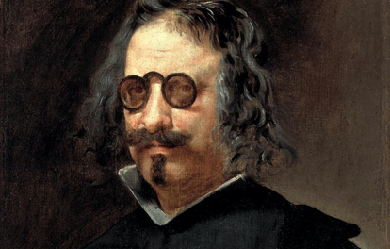
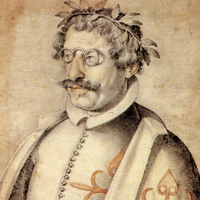
Francisco Gómez de Quevedo Villegas y Santibáñez Cevallos (Madrid, 14 de septiembre de 15801-Villanueva de los Infantes, Ciudad Real, 8 de septiembre de 1645) fue un noble, político y escritor español del Siglo de Oro. Fue caballero de la Orden de Santiago a partir de 16182 y señor de Torre de Juan Abad a partir de 1620.3 Junto con Luis de Góngora, con quien mantuvo una enemistad durante toda su vida, es reconocido como uno de los más notables poetas de la literatura española. Además de su poesía, fue un prolífico escritor de narrativa y teatro, así como de textos filosóficos y humanísticos. Salutación Mi señor don Francisco de Quevedo y Villegas, que con el verso esgrimes y con la esgrima juegas, haciendo –para orgullo del verso y de la esgrima– donaire del acero y acero de la rima: caballero bizarro de las nocturnas bregas, sabias prosas y empresas galantes y andariegas; cuya torcida planta huella la noble cima cortesana y el fondo canalla de la sima plebeya, con la misma genial desenvoltura: hidalgo aventurero de múltiple aventura (amor, poder, intriga, presión, peligro), terso, leal, como tu espada de amigo y de enemigo: en mi siniestra Torre de Juan Abad bendigo tu nombre, Caballero se Santiago y del Verso. —Alfredo Arvelo Larriva
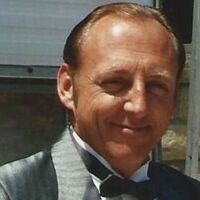
Worked in Manufacturing for 45 years. I am now a retired Tool&Die Maker. I am married with two grown children. I write poems, short stories, and some children's stories. I have published Poems in Quarterlies across the US in the 1980's, some awards and honorable mentions. My stories and some poems are now published on Booksie.com --- Author names = D. Thurmond --- & --- JE Falcon.
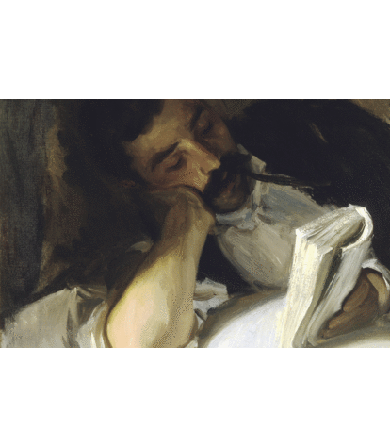
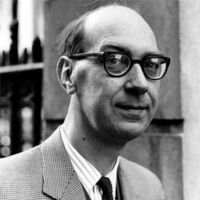
Philip Arthur Larkin (9 August 1922 – 2 December 1985) was an English poet and novelist. His first book of poetry, The North Ship, was published in 1945, followed by two novels, Jill (1946) and A Girl in Winter (1947), but he came to prominence in 1955 with the publication of his second collection of poems, The Less Deceived, followed by The Whitsun Weddings (1964) and High Windows (1974). He was the recipient of many honours, including the Queen's Gold Medal for Poetry. He was offered, but declined, the position of poet laureate in 1984, following the death of John Betjeman.

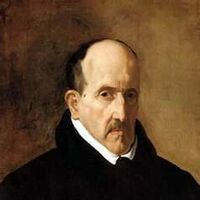
Luis de Góngora y Argote (Córdoba, 11 de julio de 1561 – ibídem, 23 de mayo de 1627) Poeta español. Nacido en el seno de una familia acomodada, estudió en la Universidad de Salamanca. Nombrado racionero en la catedral de Córdoba, desempeñó varias funciones que le brindaron la posibilidad de viajar por España. Su vida disipada y sus composiciones profanas le valieron pronto una amonestación del obispo (1588). Su fama fue enorme durante el Barroco, aunque su prestigio y el conocimiento de su obra decayeron luego hasta bien entrado el siglo XX, cuando la celebración del tercer centenario de su muerte (en 1927) congregó a los mejores poetas y literatos españoles de la época (conocidos desde entonces como la Generación del 27) y supuso su definitiva revalorización crítica.


